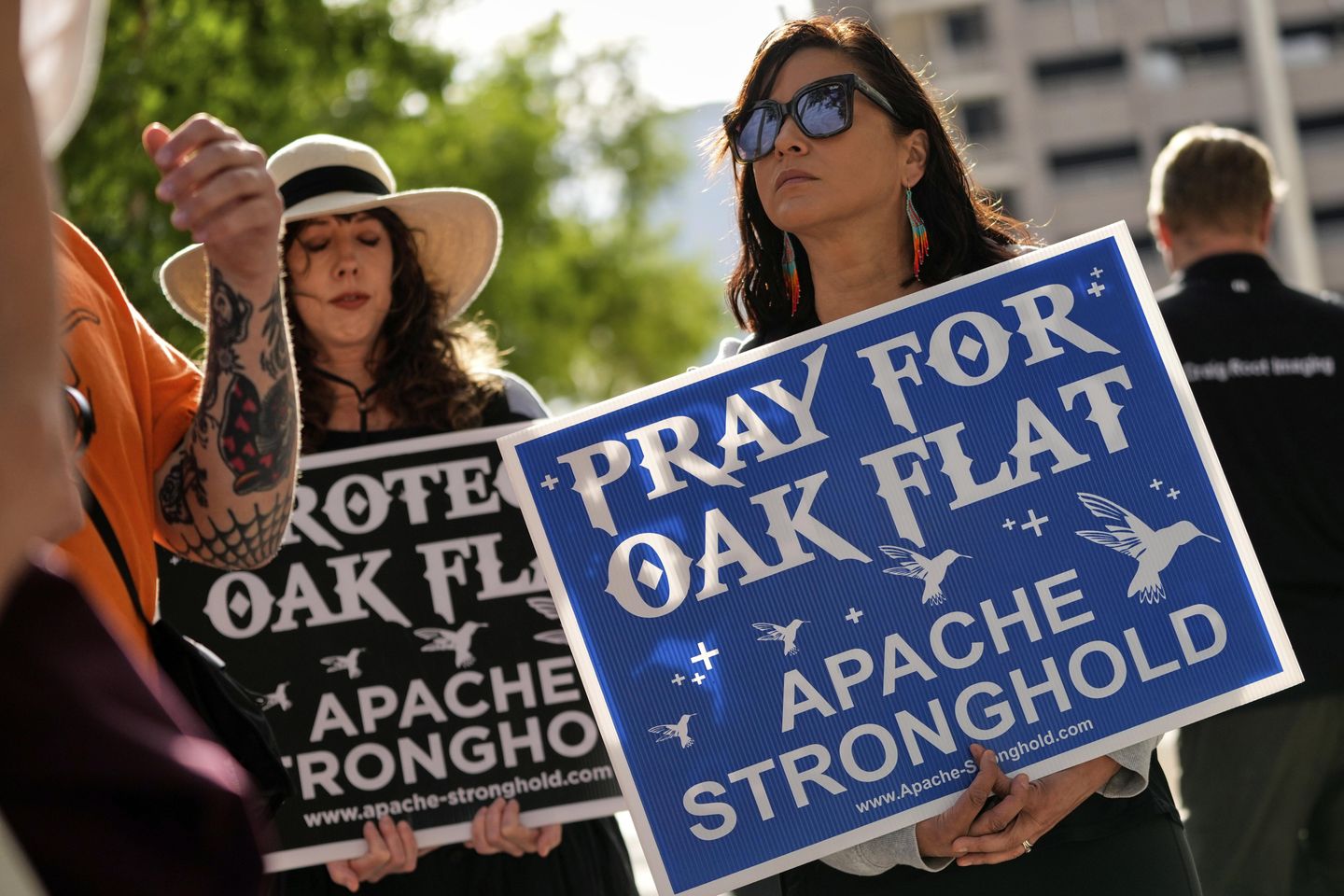
Justice Neil M. Gorsuch, joined by Justice Clarence Thomas, said in a dissent Tuesday that it was a “grave” mistake for the Supreme Court not to hear a religious liberty dispute concerning sacred land for the Western Apaches.
Justice Gorsuch, a Trump appointee, said the lower court’s decision against Apache Stronghold, a group aiming to protect the American Indian site, was “doubtful as a matter of law.”
“Before allowing the government to destroy the Apaches’ sacred site, this Court should at least have troubled itself to hear their case,” wrote Justice Gorsuch.
Western Apaches protested the transfer of sacred land in Arizona to a foreign mining company, asking the justices to hear the dispute and halt the takeover.
The case focused on Oak Flat, a 6.7-square-mile location outside Superior, Arizona.
It’s been used for more than 1,000 years for religious ceremonies such as boys entering manhood, girls entering womanhood, blessings, healing and medical treatment through sacred plants, according to court papers.
Oak Flat has been treated as sacred, historic land under prior presidents.
But in 2014, former Arizona Sens. John McCain and Jeff Flake attached the land to a National Defense Authorization Act, which transferred it to Resolution Copper, an entity created by Rio Tinto and BHP, two multinational companies.
The interest in the site began in 1995 when copper was discovered.
Justice Samuel A. Alito Jr. didn’t take part in the court’s decision, the high court’s docket noted.
Luke Goodrich, representing Apache Stronghold as vice president and senior counsel at Becket Religious Liberty for All, said this has been a “brazen attack on faith.”
“The court’s refusal to halt the destruction is a tragic departure from its strong record of defending religious freedom. We will do everything in our power to ensure that the Apaches can continue worshiping at Oak Flat as they have for generations,” Mr. Goodrich said.
“We will never stop fighting — nothing will deter us from protecting Oak Flat from destruction,” said Wendsler Nosie Sr. of Apache Stronghold. “While this decision is a heavy blow, our struggle is far from over. We urge Congress to take decisive action to stop this injustice while we press forward in the courts.”
Meanwhile, Vicky Peacey, general manager of Resolution Copper, said they are pleased.
“The Resolution Copper mine is vital to securing America’s energy future, infrastructure needs, and national defense with a domestic supply of copper and other critical minerals. We are encouraged by the significant community support for the project, which has the potential to become one of the largest copper mines in America, add $1 billion a year to Arizona’s economy, and create thousands of local jobs in a region where mining has played an important role for more than a century,” she said.
“More than a decade of extensive consultation and collaboration with Native American Tribes and local communities has directly led to major changes to the mining plan to preserve and reduce potential impacts on Tribal, social, and cultural interests, and this ongoing dialogue will continue to shape the project.”












